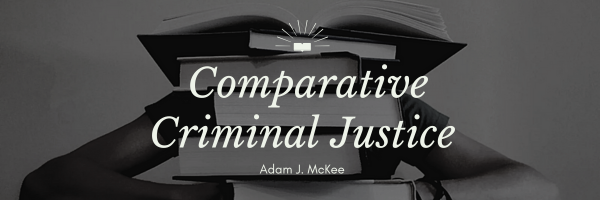Saudi Arabia’s criminal justice system is deeply rooted in Islamic law (Sharia), offering a theocratic framework that intertwines governance, religious principles, and societal norms. The system’s foundation rests on the Qur’an and Sunnah, supplemented by consensus (ijma) and analogical reasoning (qiyas), creating a comprehensive legal framework that governs not only criminal law but also personal conduct, family relations, and commerce. Sharia’s role as both a moral and legal guide highlights the kingdom’s commitment to preserving its religious identity while addressing modern legal and societal needs.
Reading Time: 3 minutes
While my Ph.D. is in Administration of Justice from an American institution, I have done my best to provide accurate information about other countries’ criminal justice systems. I welcome corrections or additional insights from experts and professionals—please contact me via email or the comment box below.
Central to Saudi Arabia’s justice system is its classification of crimes into hudud, qisas, and ta’zir categories, each with distinct principles and punishments. Hudud offenses, viewed as violations against God, are met with fixed penalties like flogging or amputation, while qisas crimes involve retributive justice, allowing victims or their families to choose between retribution, compensation (diyya), or forgiveness. The discretionary ta’zir category enables flexibility, granting judges the authority to tailor punishments to the specifics of individual cases. This structured approach ensures that justice is both principled and adaptable, reflecting the dual priorities of deterrence and rehabilitation.
Saudi Arabia’s law enforcement agencies, including the regular police and the religious police (Mutawa), exemplify the kingdom’s integration of criminal and moral oversight. While the regular police enforce laws addressing theft, assault, and other crimes, the Mutawa promote public adherence to Islamic values. Recent reforms, particularly under the Vision 2030 initiative, have redefined the Mutawa’s role, curbing their authority and emphasizing advisory functions to align with modern governance standards.
The judicial process, led by qadis (judges) and informed by Islamic scholars, emphasizes reconciliation, strict evidentiary standards, and rulings grounded in Sharia principles. Additionally, the kingdom has increasingly embraced rehabilitation programs and alternatives to traditional punishments, reflecting a nuanced approach that balances the imperatives of justice, tradition, and modernity.
Modification History File Created: 01/23/2025 Last Modified: 01/23/2025
You are welcome to print a copy of pages from this Open Educational Resource (OER) book for your personal use. Please note that mass distribution, commercial use, or the creation of altered versions of the content for distribution are strictly prohibited. This permission is intended to support your individual learning needs while maintaining the integrity of the material.
This work is licensed under an Open Educational Resource-Quality Master Source (OER-QMS) License.

